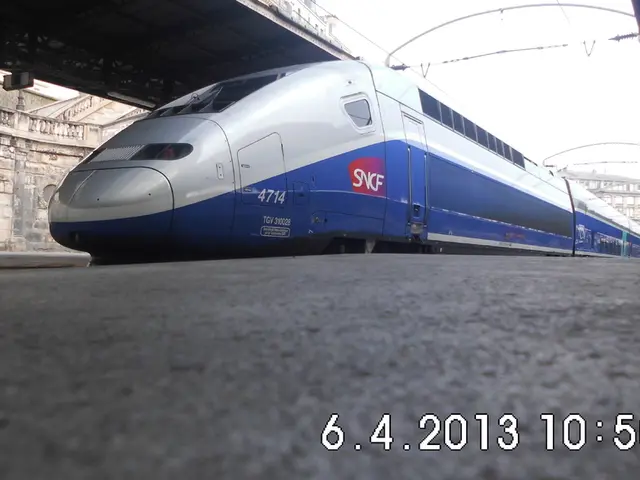Lifting of Speed Limit on Major Roads indicated for Tempo 30 Zone.
Berlin's main streets are gearing up for a speed limit increase to 50 km/h, sparking a heated debate among residents and policymakers. Currently, over 40 major thoroughfares operate under a 30 km/h speed limit due to air quality concerns, but traffic senator Ute Bonde (CDU) fears the restrictions have had detrimental effects.
Bonde recently announced that the air quality has improved significantly in many areas, permitting a relaxation of the speed limit on 25 streets. However, this proposal has met resistance. The German Environmental Aid (DUH) condemned the move, threatening legal action. DUH federal director Jürgen Resch argued, "The black-red senate wants to send Berlin back in time with a speed limit of 50 km/h, creating an increase in air pollution, noise pollution, and decreased road safety for pedestrians and cyclists."
Seven streets still struggle with poor air quality, thus the speed limit will remain in place. Nine other streets will maintain the lower limit due to safety concerns, such as proximity to schools and nursing homes. The remaining 25 streets will undergo evaluations for school route safety, a new requirement for "high-frequency school routes," a stipulation in the latest road traffic regulations.
Critics from the SPD faction also expressed concern over Bonde's plan, citing an arbitrary compromise on traffic safety. Tino Schopf, the SPD's transport spokesman, emphasized that thorough assessments of speed limits for traffic safety and school routes are crucial. Schopf cautioned against political favoritism towards drivers, an accusation that CDU faction leader Dirk Stettner flatly denied.
The Green Party called on parents to advocate for 30 km/h speed limits on school routes and near schools. The Green Party's transport experts Oda Hassepaß and Antje Kapek defended this stance, contending, "Traffic calming measures save lives, particularly children's. Unfortunately, the CDU in Berlin blocks every attempt at progressive exhaust policies."
The timeline for school route safety assessments remains unclear. The transport administration is currently coordinating with schools, districts, and the police to gather necessary information. Bonde acknowledged that there are no established criteria yet for defining a high-frequency school route.
The Senate has approved Bonde's proposal to revise and update the existing air pollution control plan and noise action plan. After the council of mayors' consideration and the opportunity for objections and comments from districts by mid-July, the council may pass a resolution on the updated plans on August 5th. In the meantime, the current speed limits will remain in place. Depending on the progress of school route safety evaluations, any retroactive adjustments may be made.
The controversy reflects a larger urban mobility dilemma, where balancing safety, movement, and environmental sustainability becomes essential as cities densify. In this debate, concerns about traffic safety, efficient mobility, and environmental impact are at odds, illustrating the politicized nature of urban development and livability.
- Ute Bonde, the traffic senator, announced that the air quality in many areas has improved, allowing a relaxation of the speed limit on 25 streets.
- Critics from the SPD faction expressed concern over Bonde's plan, arguing that thorough assessments of speed limits for traffic safety and school routes are essential.
- The Green Party called on parents to advocate for 30 km/h speed limits on school routes and near schools, stating that traffic calming measures save lives, particularly children's.
- The Senate has approved Bonde's proposal to revise and update the existing air pollution control plan and noise action plan, but the timeline for school route safety assessments remains unclear.








